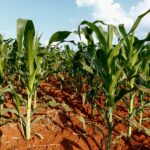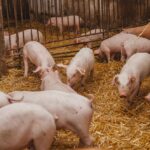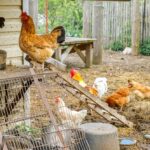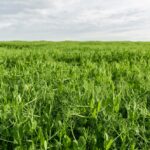Sunflower farming has become one of the most promising agricultural ventures in South Africa, particularly for oil production. As the demand for sunflower oil continues to rise both locally and globally, more farmers are turning to this hardy, profitable crop. With its adaptability, relatively low input requirements, and strong market potential, sunflower farming offers a valuable opportunity for small-scale and commercial producers alike.
South Africa’s climate and soil conditions are well-suited to sunflower cultivation. The crop thrives in regions with moderate rainfall and plenty of sunshine, making provinces like North West, Free State, Limpopo, and parts of Mpumalanga ideal for large-scale production. Sunflowers are also known for their drought tolerance, which makes them a viable choice in areas with unpredictable rainfall patterns.
Planting sunflowers for oil production requires careful planning, especially when it comes to seed selection. High-oil content hybrid varieties are preferred for processing, as they yield more oil per tonne of seed. These hybrids also offer improved resistance to common pests and diseases, ensuring a more reliable harvest. Farmers typically plant sunflowers from late November to early January, depending on the region, and harvest them about four to five months later.
One of the key advantages of sunflower farming is its relatively low input cost compared to other cash crops. While fertiliser and weed control are essential for optimal growth, sunflowers generally require fewer chemical interventions. This makes them attractive to resource-conscious farmers looking to reduce production costs while maintaining profitability. Crop rotation with maize or wheat also helps to break pest and disease cycles, improving soil health and long-term farm sustainability.
Sunflower oil is extracted from the seeds through crushing and pressing, and the by-product, sunflower meal, is used as a high-protein animal feed. This dual-purpose value chain enhances the economic benefits for producers. In South Africa, a network of processors and oil crushers ensures steady demand for sunflower seeds, with major buyers including edible oil manufacturers, food companies, and animal feed producers.
The local market for sunflower oil is growing steadily, driven by its reputation as a healthier cooking oil and its versatility in both domestic and industrial applications. South African households increasingly prefer sunflower oil for its light flavour and high smoke point, while international markets are also showing interest, especially where non-GMO and sustainably grown oil is in demand.
However, successful sunflower farming depends on good timing and agronomic practices. Proper soil preparation, early weed control, and timely planting are essential. Farmers also need to monitor for pests such as cutworms and birds, which can affect seed quality and yield. Harvesting should take place when seed moisture drops to around 10%, ensuring safe storage and maximum oil extraction.
Sunflower farming not only supports food security through edible oil production but also contributes to job creation and rural development. As South Africa continues to invest in agricultural value chains, sunflower oil production is poised to play an even greater role in the country’s economy. With its resilience, profitability, and market relevance, sunflower farming stands out as a smart choice for farmers seeking sustainable income and long-term growth.
Join 'Farmers Mag' WhatsApp Channel
Get the latest Farming news and tips delivered straight to your WhatsApp
CLICK HERE TO JOIN






